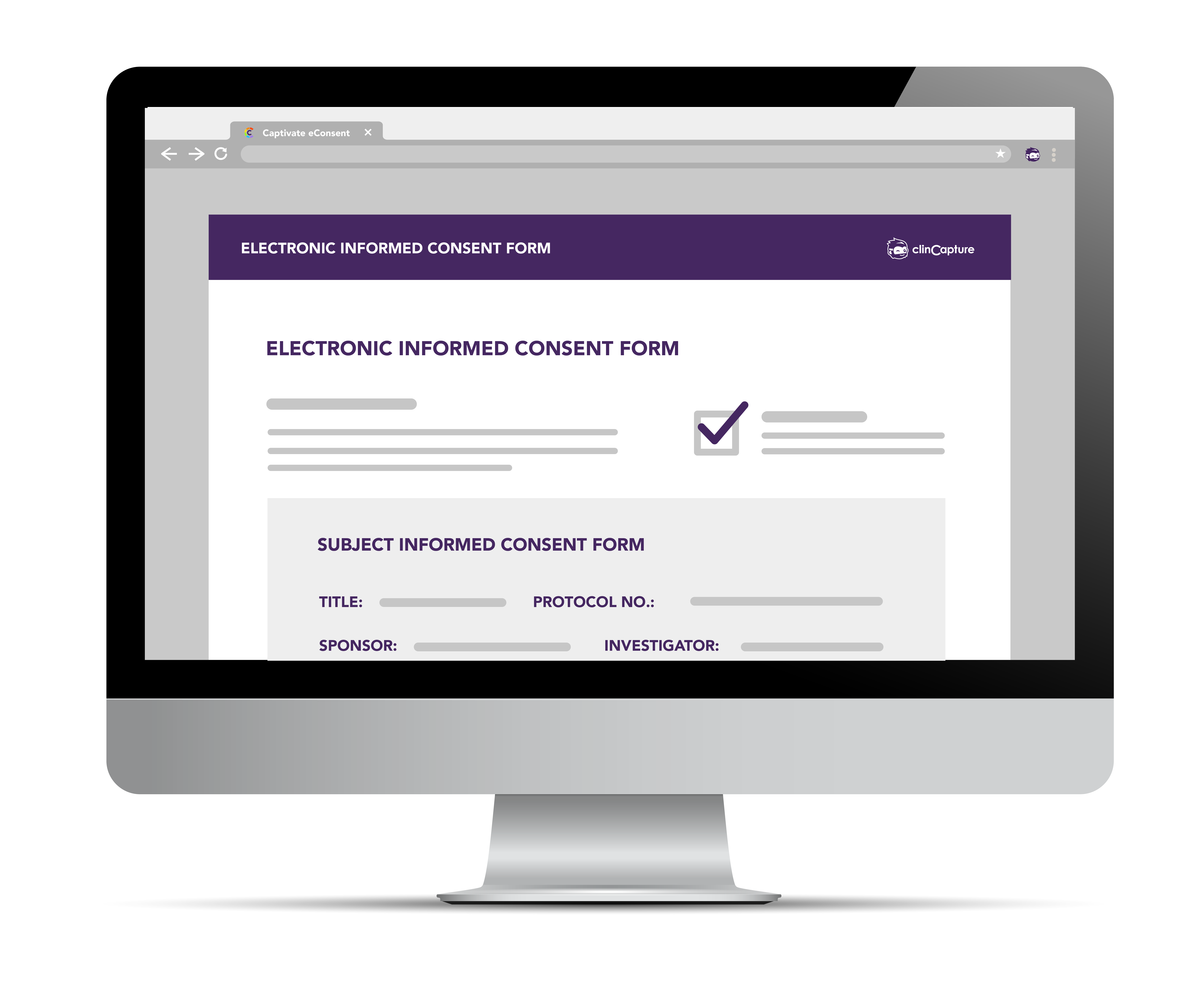17 March, 2021, by ClinCaptureUser
What is eConsent?
The Food and Drug Administration has defined electronic informed consent (eConsent) as “the use of electronic systems and processes that may employ multiple electronic media, including text, graphics, audio, video, podcasts, passive and interactive Web sites, biological recognition devices, and card readers, to convey information related to the study to obtain and document informed consent.”
How does eConsent work?
ClinCapture offers Virtual Data Capture® (VDC®) eConsent. The eConsent form is a web-based survey that the prospective study participant completes. The URL for the survey can be sent to study participants via email. All of the information that the participant provides in a VDC® eConsent survey is captured directly into the Captivate® electronic data capture (EDC) system.

What are the benefits?
VDC® eConsent automates the patient enrollment process and onboards patients directly into Captivate® EDC.
Here are the benefits of VDC® eConsent:
- Speeds up the study start-up process
- Reduces informed consent errors
- Ability to configure for multiple languages and regulatory environments
- Creates complete virtual experience for study participants
eConsent transforms the experience for the study participant by providing easy-to-understand clinical trial information while improving participant compliance and boosting engagement.
Why use VDC® eConsent?
VDC® eConsent not only improves the process for the study participant but for study admins as well. Since VDC® eConsent is captured directly into Captivate® EDC it eliminates the need for a “go-between” to input information. This saves time and money.
Is it compliant?
Yes, VDC® eConsent facilitates guaranteed signature compliance and remote consent monitoring.
How can I get eConsent for my study?
You can learn more about eConsent by requesting a demo here. eConsent is available with VDC®, ClinCapture ’s cutting-edge suite of proprietary products designed to accelerate remote or decentralized clinical trials.



